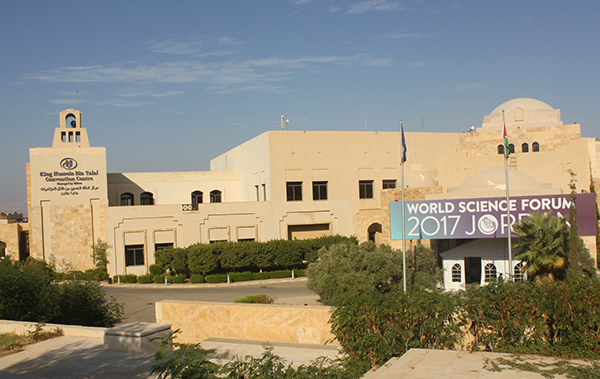By: Ben Deighton
Send to a friend
The details you provide on this page will not be used to send unsolicited email, and will not be sold to a 3rd party. See privacy policy.
[DEAD SEA] Data hoarding and inefficient coordination is hampering efforts to solve the increasingly acute problem of access to fresh water in the Middle East, a conference on science for peace has heard.
The Jordan River played a central part in the Arab Israeli conflict as a critical source of water for the region, and water is one of the central issues of the UN-organised World Science Forum, held on the banks of the Dead Sea in Jordan from 7 to 11 November.
The problem is that the yearly amount of drinkable fresh water available to people in the region has dropped to 80 cubic metres per person, way below the water scarcity limit of 1,000 cubic meters per person set by the UN.
“A lot of initiatives have been pushing to help countries develop national water energy information systems,”
El Kharraz
One issue that holds back efforts to safeguard supplies is a lack of sharing of vital data on rainfall and water usage between regions vying for water resources, such as Israel and Palestine or India and Bangladesh.
“Sometimes it happens today, in this part of the region, that upstream countries are withholding data and they are using it as a negotiating chip,” Andras Szollosi-Nagy, from the National University of Public Service in Hungary, told the conference.
The WSF was hosted by the Jordanian Princess Sumaya bint Hassan, and included presentations from physicist Michio Kaku and a message from astronauts aboard the International Space Station.Organisations need to develop water information systems, according to Dr Jauad El Kharraz, head of research at MEDRC Water Research in Oman, adding that this is an important part of the solution.
“A lot of initiatives have been pushing to help countries develop national water energy information systems so we can have at the level of the decision-maker a common indicator so [as] to assess … if we are on the right track,’ El Kharraz explained.
He said data sharing needs to be done between countries but also between energy companies, farming groups and water sectors within countries. “There is a lack of coordination between different actors at national level.”
Another part of the solution to better data sharing rests on the shoulders of civil society and international organisations, according to Marcia Barbosa from the Universidade Federal do Rio Grande do Sul in Brazil. They need to create better networks, she said, to find ways in which different sectors could benefit each other.
This is particularly true between the energy and water sectors, which are inextricably linked with water often an integral part of energy production, and energy needed to supply drinking water to homes.
“Maybe the region that is thinking about energy, they have water so they didn’t link immediately their renewable energy sources with the idea of using water,” Barbosa told the meeting. “We have to link the people [who are] thinking about the individual problems.”














